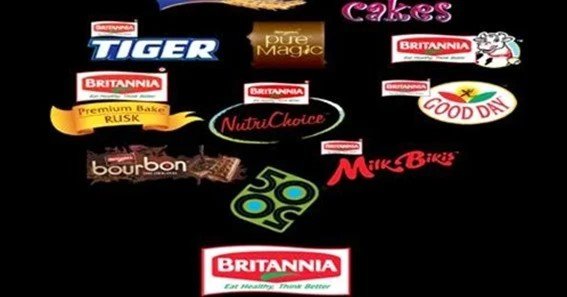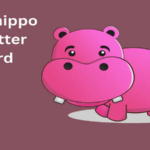Britannia Industries has long held a significant position in India’s FMCG (Fast-Moving Consumer Goods) sector, especially in the biscuit and bakery segment. However, the Indian market is highly competitive, and numerous brands are eager to capture a share of Britannia’s dominance. In this article, we will explore the major competitors of Britannia Company and how they are challenging its position as a leading brand in India’s FMCG market.
Major Competitors of Britannia Industries
Britannia’s leadership in the biscuit and bakery market isn’t unchallenged. Here’s a detailed look at the key Britannia rivals in the market and how they stack up against each other:
1. Parle Products: A Leading Rival
Parle is one of the most prominent competitors of Britannia Company, especially in the biscuit segment. Parle-G, a flagship product, is known as the world’s largest-selling biscuit brand. Parle’s affordability and brand recognition make it a significant competitor, constantly engaging in a market share of Britannia and competitors battle.
2. ITC Foods: Expanding Its Footprint
ITC, a diversified conglomerate, is another major player in the FMCG sector. With brands like Sunfeast, ITC has positioned itself as a formidable competitor in the biscuit and cookie market. The company’s aggressive marketing and product diversification make it a top contender in the Britannia company competition analysis.
3. Nestlé India: The Global Giant
While Nestlé is best known for its dairy and chocolate products, its entry into the biscuit market with brands like “Munch” and “KitKat” positions it as a strong competitor. Nestlé’s extensive distribution network and brand loyalty are factors challenging Britannia’s dominance.
4. HUL (Hindustan Unilever Limited): A Comprehensive FMCG Contender
HUL’s focus on bakery and snacks has made it another major competitor of Britannia Industries. With a wide range of FMCG products, HUL’s presence in the market adds pressure on Britannia to innovate continuously.
5. Patanjali: The Rising Challenger
Patanjali’s rapid growth in the FMCG sector has made it a serious contender. Known for its Ayurvedic and health-focused products, Patanjali targets a health-conscious demographic, often in direct competition with Britannia’s healthy and premium product lines.
Britannia vs Other FMCG Companies: Market Analysis
Britannia faces stiff competition from other FMCG giants across various segments. Here’s a closer look at how it compares with its competitors:
Biscuit Market Competition Analysis
Britannia remains one of the top players in the Indian biscuit market, but leading brands competing with Britannia are catching up. Companies like Parle and ITC are narrowing the gap with innovative products and competitive pricing strategies.
FMCG Industry Competition in India
India’s FMCG industry is highly fragmented, with both local and multinational companies vying for consumer attention. Britannia’s strategy of focusing on premium biscuits and bakery products has kept it at the top, but companies like HUL and Nestlé are intensifying the competition with their comprehensive product portfolios.
Comparison of Britannia and Parle
The competition between Britannia and Parle has always been a major talking point. Britannia dominates the urban market with premium products, while Parle leads in rural areas with affordable options. This urban vs rural divide is a key aspect of the ongoing rivalry.
Strategies Adopted by Britannia’s Competitors
To challenge Britannia’s position, its competitors have adopted several strategies:
- Product Innovation: Brands like ITC and Nestlé focus on constant innovation, introducing new flavors and product lines to attract a broader audience.
- Pricing Wars: Parle and Patanjali often compete with Britannia through competitive pricing, targeting price-sensitive consumers.
- Health Focus: Competitors are launching health-oriented products, such as low-sugar and high-fiber options, to attract a health-conscious consumer base.
- Distribution Expansion: Companies like Nestlé are leveraging their vast distribution networks to enhance product availability in both urban and rural areas.
Future of Britannia in a Competitive Market
As the Indian FMCG market continues to evolve, Britannia’s ability to maintain its market share will depend on its adaptability. Increasing focus on premium products, health-conscious offerings, and leveraging digital channels could be key factors in sustaining its dominance amidst fierce competition.
FAQ
1. Who are the major competitors of Britannia Company?
Major competitors of Britannia include Parle, ITC, Nestlé, Hindustan Unilever Limited (HUL), and Patanjali.
2. How does Britannia compare with Parle in the biscuit market?
Britannia dominates the urban segment with premium offerings, while Parle leads in rural areas with affordable biscuits like Parle-G.
3. What are the challenges Britannia faces in the FMCG sector?
Britannia faces competition in product innovation, pricing, and distribution from major FMCG brands like ITC and Nestlé.
4. What strategies do Britannia’s competitors use to challenge its market position?
Competitors often focus on product innovation, competitive pricing, health-focused products, and expanding distribution channels.
5. Is Britannia still the market leader in India’s biscuit segment?
Yes, Britannia remains a leading player, but it faces increasing competition from brands like Parle and ITC, which are narrowing the market share gap.
Conclusion
The competitors of Britannia Company are diverse and aggressive, each adopting unique strategies to gain a foothold in India’s thriving FMCG market. Britannia continues to lead but must innovate and adapt to maintain its position as the “Biscuit King.” With a focus on premium products and a strong brand legacy, Britannia remains a formidable player in an ever-evolving industry.
Disclaimer: This article is for informational purposes only and should not be taken as financial advice. Always consult a financial advisor for investment decisions.










